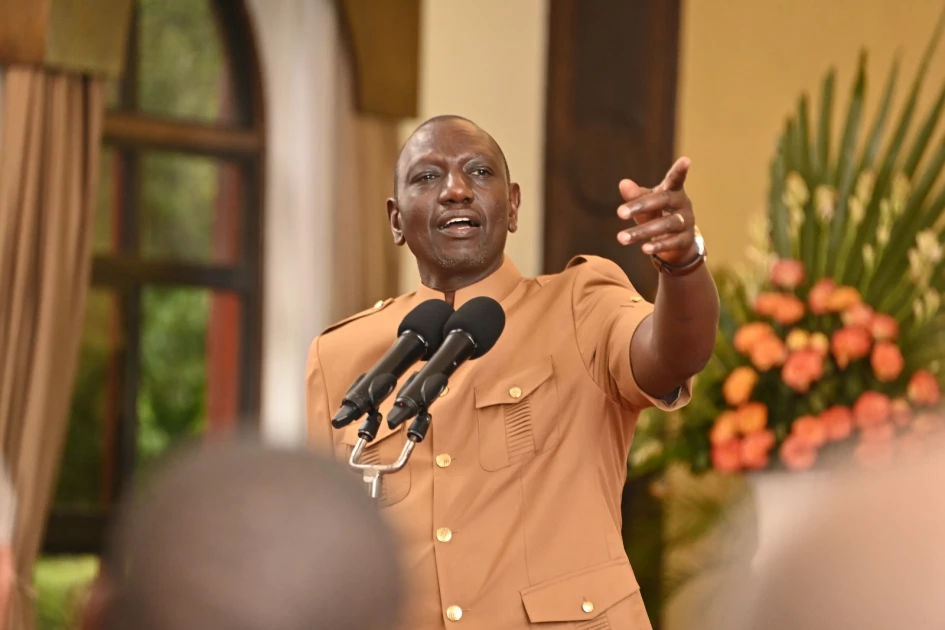‘Impunity!’: Behind President Ruto’s attacks on the Judiciary

File image of President William Ruto. | PHOTO: PCS
Decisions
from the High Court slamming the breaks on some of President Ruto’s flagship
projects, seem on the preliminary, to be at the heart of the president’s
scathing attacks on the Judiciary.
The
latest project to come to a halt through the courts is the social health scheme
laws that have been suspended after a petitioner moved to court to challenge
them on grounds that they contravened the constitution with provisions seeking
to deny Kenyans’ critical rights.
The
housing levy, meant to finance the ambitious project to have the government
build 250,000 housing units was declared unconstitutional as the High Court
found it discriminatory as it made an unjustified distinction between people
employed in the formal and informal sectors.
The
courts have also stopped the intended privatisation of 11 government
parastatals, the rollout of the Maisha Namba project that seeks to introduce a
new digital identification system, the privatisation of the Mombasa and Lamu
ports among other projects that the Kenya Kwanza government intends to
implement.
Ruto
has been able to push through even controversial laws through the legislature
through the sheer force of his party UDA's numbers or threats when need be.
“Kila
mjumbe ajulikane amepiga kura upande gani, mimi nangojea kuona mjumbe mwenye
anaenda kupiga kura kupinga mpango ya serikali ya kupatia hawa vijana,
waliowapigia kura, ati ajira, I am waiting,” he previously said.
But
the judiciary remains the one arm of government that isn't dancing to his tune
just yet.
The
judiciary holding steadfast to the independence that the constitution grants it
in article 10, which directs it to "exercise judicial authority, subject
only to the constitution and the law, and not to be subject to the control or
direction of any person or authority" It is also guided, in exercising
that independence, in the principles that justice shall be done to all,
irrespective of status, and shall not be delayed. and the courts through
various administrations appear to strive to uphold.
Kenya's
judiciary has gained significant independence with the enactment of the 2010
constitution that served to pry power and control of the executive over the
judiciary.
Previously,
the president had the power to appoint not only the chief justice of the Court
of Appeal, then Kenya’s highest court but also all the members of the Judicial
Service Commission, responsible for hiring and disciplining judges.
The
security of tenure that now comes with the 2010 constitution has served to
embolden judges to do their jobs without fear, and since then, the country's
judicial landscape has been littered with court decisions that would otherwise
have appeared unthinkable.
The
president's recent and current outbursts against the Judiciary have critics
worried that the Executive is attempting to return the country to the pre-2010
times, where the Judiciary was threatened and intimidated to do the Executive's
bidding.
Want to send us a story? SMS to 25170 or WhatsApp 0743570000 or Submit on Citizen Digital or email wananchi@royalmedia.co.ke
Comments
No comments yet.


Leave a Comment